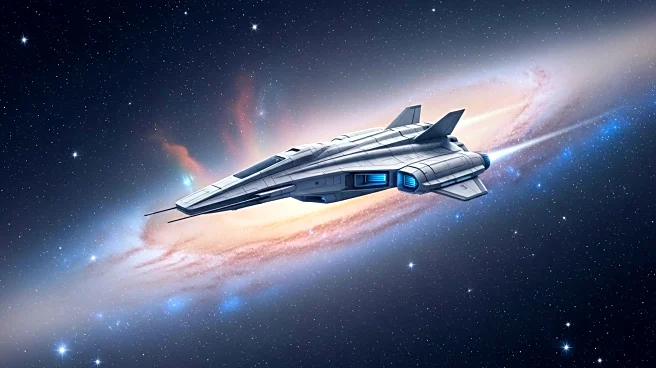What's Happening?
Warner Bros. Discovery has initiated legal action against AI company Midjourney, accusing it of using copyrighted characters such as Superman, Batman, and Scooby-Doo without permission to train its image generation service. The lawsuit, filed in a U.S. District Court in Los Angeles, claims that Midjourney's AI models were developed using illegal copies of Warner Bros. Discovery's copyrighted works, resulting in the creation of infringing images and videos. Warner Bros. Discovery is seeking unspecified damages, disgorgement of profits, and an injunction to prevent further infringements. The lawsuit highlights Midjourney's alleged failure to protect rights holders from unauthorized use of copyright-protected characters, describing the company's actions as a calculated and profit-driven decision.
Why It's Important?
This lawsuit underscores the growing tension between traditional media companies and AI technology firms over intellectual property rights. As AI-generated content becomes more prevalent, media companies like Warner Bros. are increasingly concerned about the unauthorized use of their copyrighted material. The outcome of this case could set a precedent for how copyright laws are applied to AI-generated content, potentially impacting the operations of AI companies and their use of copyrighted works. If Warner Bros. succeeds, it may encourage other rights holders to pursue similar legal actions, which could lead to stricter regulations and limitations on AI content creation.
What's Next?
The legal proceedings will likely involve detailed examinations of copyright law as it pertains to AI technology. Midjourney may argue that its use of copyrighted works falls under 'fair use,' a defense previously employed in similar cases. The court's decision could influence future interactions between AI companies and media giants, possibly prompting changes in how AI models are trained and how intellectual property rights are enforced. Stakeholders in the AI and entertainment industries will be closely monitoring the case for its implications on content creation and distribution.
Beyond the Headlines
The lawsuit raises broader questions about the ethical use of AI in creative industries. As AI technology advances, the line between inspiration and infringement becomes increasingly blurred, challenging existing legal frameworks. This case may prompt discussions on the need for updated copyright laws that address the unique challenges posed by AI-generated content. Additionally, it highlights the potential for AI to disrupt traditional media business models, necessitating new strategies for protecting intellectual property.









